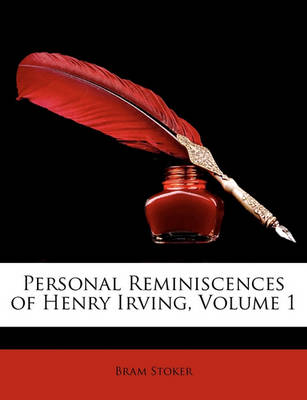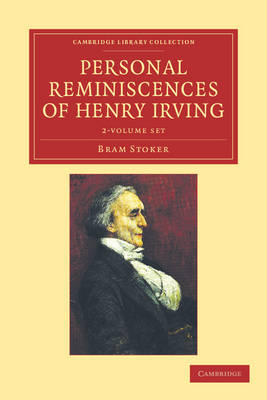Cambridge Library Collection - Shakespeare and Renaissance Drama
2 primary works • 3 total works
Volume 1
The greatest actor of his day, Sir Henry Irving (1838-1905) thrilled audiences with his tragedy and melodrama, his Hamlet and Richard III, most famously at the Lyceum Theatre in London. Born John Henry Brodribb, he took the name Irving for his first professional stage appearance in 1856. A long and exhausting apprenticeship followed, during which he played some 700 roles in theatres up and down the country before establishing his reputation in 1871 in the psychological thriller The Bells. In 1878, he took over the Lyceum and here, with his business manager Bram Stoker (1847-1912) and actress Ellen Terry (rumoured to be his mistress), he became the theatrical icon of his age. This engaging two-volume tribute by Stoker, his closest friend, was first published in 1906. Volume 1 includes reminiscences of Irving's Shakespeare, performances of The Bells, Faust and Tennyson's plays, Ellen Terry's acting and his appearances in America.
Volume 2
The greatest actor of his day, Sir Henry Irving (1838-1905) thrilled audiences with his tragedy and melodrama, his Hamlet and Richard III, most famously at the Lyceum Theatre in London. Born John Henry Brodribb, he took the name Irving for his first professional stage appearance in 1856. A long and exhausting apprenticeship followed, during which he played some 700 roles in theatres up and down the country before establishing his reputation in 1871 in the psychological thriller The Bells. In 1878, he took over the Lyceum and here, with his business manager Bram Stoker (1847-1912) and actress Ellen Terry (rumoured to be his mistress), he became the theatrical icon of his age. This engaging two-volume tribute by Stoker, his closest friend, was first published in 1906. Volume 2 includes a fascinating account of Irving's acting techniques and his receipt of a knighthood - the first actor to be thus honoured.
The greatest actor of his day, Sir Henry Irving (1838-1905) thrilled audiences with his tragedy and melodrama, his Hamlet and Richard III, most famously at the Lyceum Theatre in London. Born John Henry Brodribb, he took the name Irving for his first professional stage appearance in 1856. A long and exhausting apprenticeship followed, during which he played some 700 roles in theatres up and down the country before establishing his reputation in 1871 in the psychological thriller The Bells. In 1878, he took over the Lyceum and here, with his business manager Bram Stoker (1847-1912) and actress Ellen Terry (rumoured to be his mistress), he became the theatrical icon of his age. This engaging two-volume tribute by Stoker, his closest friend, was first published in 1906.


